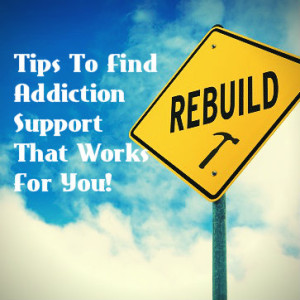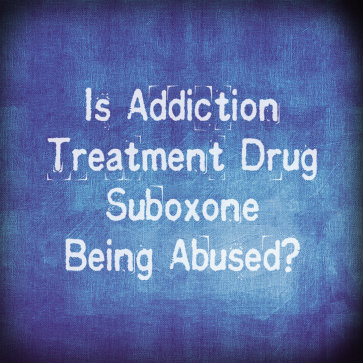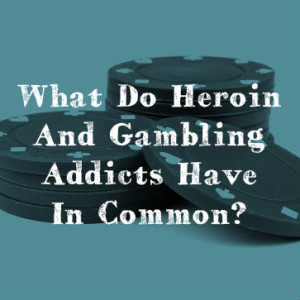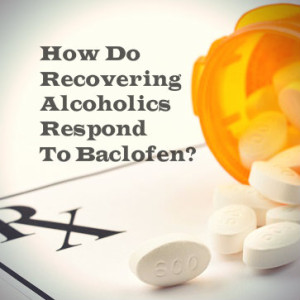On Jan. 1, 2014, legal recreational marijuana sales began in Colorado, with remarkably little fuss. Long lines appeared at the 37 stores across the state—mostly in the Denver area—that were fully licensed in time for the New Year, but any worries that the crowds might become disorderly proved to be unfounded.
Law enforcement was a major presence around the newly licensed establishments throughout the day to ensure that the crowds did not get out of hand, and to check the establishments for compliance. Stores selling marijuana must check IDs to ensure each customer is 21 years of age or older, and to determine each customer’s state of residence. Under the new laws, Colorado residents are permitted to buy up to one ounce of marijuana, while out-of-state customers are permitted to buy up to one-quarter of an ounce.
Setting The Precedent Of Legalizing Marijuana
 Colorado is not just the first U.S. state to legalize the sale of recreational marijuana—it is the first state or city anywhere in the world to open stores officially licensed to sell recreational marijuana. Both Colorado and Washington voted to legalize marijuana in the November elections of 2012, but Washington stores will not begin selling recreational marijuana until later in 2014.
Colorado is not just the first U.S. state to legalize the sale of recreational marijuana—it is the first state or city anywhere in the world to open stores officially licensed to sell recreational marijuana. Both Colorado and Washington voted to legalize marijuana in the November elections of 2012, but Washington stores will not begin selling recreational marijuana until later in 2014.
As the months and years pass, Colorado will be the vanguard in other ways as well. The rest of the U.S. will be looking to Colorado to evaluate the success of the state’s regulatory measures that are designed to restrict marijuana sales to licensed establishments, and restrict marijuana purchases to people of legal age. Federal and state officials will be watching to see what effects marijuana legalization has on marijuana abuse and dependence, on underage use of marijuana and on the suddenly legitimate marijuana industry.
Some opponents of the legalization of marijuana fear that the marijuana industry could become a second “Big Tobacco”—an industry that earns huge profits by causing people to become addicted to their products.
Legalized Marijuana Prices
On Jan. 1st, most stores were charging $30 to $50 for an eighth of an ounce of marijuana, although some were charging slightly more. This is significantly higher than the price of legal marijuana in Colorado at the more than 300 dispensaries licensed to sell marijuana for medical purposes to people with a prescription.
Some stores had raised their prices for opening day, and others limited purchases to smaller amounts than the law’s limit for fear of running out of stock. Average prices may drop after the first months of sales and as the stores react to the market. However, legal buyers will still have to deal with an expense that has never before factored into recreational marijuana sales: taxes. Colorado has placed a 15 percent excise tax and a 10 percent sales tax on marijuana purchases, for a total of 25 percent of the cost of the purchase.
Some early customers did express dismay over the prices, and compared them negatively to the cost of purchasing marijuana from non-licensed sources. Even so, sales at the 37 stores across Colorado totaled more than $1 million on New Year’s Day alone, and more than $5 million in the first week.
Colorado has estimated that the marijuana industry could generate around $600 million in sales per year. The state expects to collect around $70 million in taxes from these sales.
Unique Challenges For Marijuana Retailers
While the new marijuana retailers were buoyed by the early sales, there are still many challenges for those in the legal marijuana business. Although the U.S. Department of Justice has decided not to interfere with recreational marijuana sales in Colorado and Washington, these retailers are still impacted by the federal ban on recreational marijuana sales.
Marijuana retailers are not able to get traditional services from banks (who fear criminal proceedings for money laundering), and do not qualify for federal tax write-offs that assist many small business. Furthermore, many establishments are limited to cash transactions because they are not able to accept credit cards. This can make them more vulnerable to robbery, and can make it more challenging to file taxes and manage the employee payroll.
Learn About The Pros And Cons Of Legalizing Marijuana
Getting professional support and care for your addiction is an essential element in your journey toward sobriety. Addiction, whether to alcohol or drugs, is a disease. It is a chronic disease that requires treatment. You need to learn skills that you will use for the rest of your life to avoid using again. Because professional care is so important to recovery, it is a good idea to spend some time finding the facilities and the caregivers that will best match your needs. No single approach or treatment philosophy works for everyone. You need to find what works for you by doing some research and asking questions.
Will Your Family Support You In Recovery?
 Besides professional care, having the love and support of family and friends is one of the most important tools for recovery. If you have no one you can rely upon for support, you may benefit from a residential rehab facility. This is the type of place in which you stay overnight for a week, a few weeks, or even a month. The support system is built in to the program and includes your fellow patients, counselors, doctors, nurses and staff members.
Besides professional care, having the love and support of family and friends is one of the most important tools for recovery. If you have no one you can rely upon for support, you may benefit from a residential rehab facility. This is the type of place in which you stay overnight for a week, a few weeks, or even a month. The support system is built in to the program and includes your fellow patients, counselors, doctors, nurses and staff members.
Do You Need Flexibility In Your Care?
If your family is available and actively willing to support you in your recovery, you could consider an outpatient program. Another reason to consider outpatient care is if you have other responsibilities that you cannot neglect for the weeks or months needed for residential care. Outpatient programs are designed to have flexible schedules so that you can get the support you need for addiction while still going to work during the day, keeping up with your classes at night, and meeting your family obligations on a day-to-day basis.
Will Religion Help You Stay Clean?
If you have a strong faith, you can find rehab facilities and treatment programs that include a religious element. Many people find that their beliefs are what help them the most when it comes to getting sober and staying clean. If this sounds like you, look for a facility or a program that is faith-based.
Do You Have Concerns About Mental Health?
It is not uncommon for addicts to also struggle with one or more mental health issues. If you have been diagnosed with depression, anxiety disorder, schizophrenia, bipolar disorder or any other mental illness, you need to receive care for your illness as well as for your addiction. The two are most likely intertwined. Make sure you look for a facility that recognizes the importance of a dual diagnosis. It is essential that you work with caregivers who are experienced at working with mental health and addiction together in order to get the best treatment.
How Will You Pay For Addiction Treatment?
Finally, make sure you select a treatment plan that you can afford to finish. There is no point in starting a treatment program only to quit early due to financial stress. If you have health insurance, find out what facilities and programs are covered. If you will be paying out of pocket, determine how much you can afford to spend and use that as part of your criteria for selection.
Finding the right treatment for addiction is important to your success. Treatment programs are not one-size-fits-all and to give yourself the best chance, you really need to shop around for the program and the professionals that will meet your needs. The Substance Abuse and Mental Health Services Administration is a good place to start for information. Take the time to read up and to make a wise choice.
Read More About Why You Need Fellowship To Recover From Addiction
A dual diagnosis means that you have a substance abuse problem, or an addiction, and you also have been diagnosed as having a mental illness. The co-occurrence of addiction and mental illness is not uncommon. If you receive a dual diagnosis, rest assured that you are not alone, but also know that you need to be treated for both issues. There are plenty of rehab facilities and caring, trained professionals who can help you work through both and help guide you through recovery.
How Many People Receive A Dual Diagnosis?
 A dual diagnosis is a fairly common occurrence. According to statistics from the National Alliance on Mental Illness, around half of all people with a severe mental illness also struggle with substance abuse. On the flipside, over one-third of people who abuse alcohol, and more than half of people who abuse drugs, are affected by mental illness. Some of the more common mental illnesses that are diagnosed with substance abuse include depression, anxiety disorder, schizophrenia, and bipolar disorder.
A dual diagnosis is a fairly common occurrence. According to statistics from the National Alliance on Mental Illness, around half of all people with a severe mental illness also struggle with substance abuse. On the flipside, over one-third of people who abuse alcohol, and more than half of people who abuse drugs, are affected by mental illness. Some of the more common mental illnesses that are diagnosed with substance abuse include depression, anxiety disorder, schizophrenia, and bipolar disorder.
Why Do Substance Abuse And Mental Illness Co-Occur?
There are several possible reasons it is so common to have both a mental illness and an addiction. The relationship is complicated and can be caused by different factors depending on the individual. If you have a mental illness, especially if you are not seeking treatment for it, you may find that you turn to drugs or alcohol as a way of self-medicating. By getting high, you may be able to momentarily push away the pain and bad feelings associated with your mental illness.
Another factor in dual diagnosis is the possibility that substance abuse triggers or worsens a mental illness. Some people use drugs or alcohol and then begin to experience the onset of mental illness symptoms for the first time. If you have an undiagnosed mental illness, like depression, and abuse drugs, you can make it worse.
Why Is It Important To Treat Both Mental Illness And Addiction?
If you receive a dual diagnosis, you must treat both conditions in order to have a chance at being well. If you get into recovery for your addiction, but ignore your mental illness, you are likely to go back to using. On the other hand, if you get help for your mental illness and fail to address your substance abuse problem, you can expect to experience relapsing symptoms of your disorder.
How Are Mental Illness And Addiction Treated Together?
Experts agree that an integrated approach to treatment is the best option for a dual diagnosis. This means that mental health professionals and addiction specialists work together with you in the same place. For instance, you might enter into a rehab facility that specializes in diagnosing and treating mental disorders along with substance abuse problems. By targeting both issues, at the same time and in the same place, you will have the best odds of success. The two problems are intertwined and to get at one, you must address the other.
Effective integrated treatment for a dual diagnosis includes several components. Care is given in stages, beginning with developing a relationship with your caregivers. Interventions that motivate you to stop using are important. Counseling for both mental illness and substance abuse should be included. Finally, having social support, whether that means working with peers or with family, is essential for good care.
If you have been surprised with a dual diagnosis, take time to learn about your options. Make sure that you get help from professionals who understand your particular needs and who will approach your care by addressing both of your issues.
See How Mental Illness And Substance Abuse Are Leading Causes of Non-Fatal Disease
If you are overweight or obese you may wonder why you can’t seem to control your weight. Other people seemingly resist the urge to overeat and manage to get out and get exercise to stay at a healthy weight. Why can’t you? Is it a simple matter of willpower, or is there something else going on? The concept of addiction has been applied to food and obesity. Learn more about addiction to find out if your behaviors toward food may resemble those of an addict. And if they do, you can get help.
What Characterizes An Addiction?
 Addiction is a complicated issue and experts have debated its definition for years. Traditionally, addiction has referred only to substances, like drugs and alcohol. These substances change the brain in ways that makes it very difficult to stop using them. Characteristics of addiction include intense craving for the substance, a loss of control when using it, and the inability to stop using even in the face of negative consequences.
Addiction is a complicated issue and experts have debated its definition for years. Traditionally, addiction has referred only to substances, like drugs and alcohol. These substances change the brain in ways that makes it very difficult to stop using them. Characteristics of addiction include intense craving for the substance, a loss of control when using it, and the inability to stop using even in the face of negative consequences.
More recently, many experts have felt that it was important to include behaviors and activities in the category of addiction. These types of addictions are called process or behavioral addictions and remain distinct from chemical addictions. Some of the behavioral addictions that get the most attention include gambling addiction, sex addiction, and compulsive shopping. Any behavior or action has the potential to become a process addiction for any person. This includes eating.
What Are Addictive Behaviors?
What chemical and process addictions have in common are the behaviors exhibited by the addicted person. For instance, someone who is an alcoholic feels an overwhelming urge to drink and be drunk nearly all the time. He also loses control when drinking. He may start out one evening with a plan to have just two drinks, but end up having 10 instead. He also continues to drink in spite of the harm it is causing to his health, his relationships and his work.
If you have a process addiction you may express similar behaviors. For instance, compulsive gamblers are always drawn to gamble, whether in casinos, online or at the track. They lose control and gamble too much money. In spite of the huge losses they experience, they cannot stop gambling. The behaviors of the alcoholic and the compulsive gambler are very similar.
Do I Have A Food Addiction?
For many addiction experts, food addiction is a real problem. Consider the three characteristics of addiction: do you feel a strong and constant pull to eat? When you eat do you often lose control and eat too much in one sitting? Do you continue to eat too much even though you know that it is harming your health and that you should lose weight? If you can answer yes to these you may have a process addiction.
To know for sure just how serious your addictive behaviors are you should seek an expert opinion. There is no absolute standard for diagnosing a food addiction, but a counselor experienced in helping people with process addictions can recognize the signs in your behaviors. A therapist can also determine if your issue is a food addiction or an eating disorder.
How Can I Get Help For A Food Addiction?
There are many counselors and therapists available who understand process addictions and who are experienced in helping people like you. A trained therapist can help you understand why you overeat and can help you make constructive changes in your life. If you are unsure where to turn to find someone, see your doctors for resources. You will never regret getting help and getting your life and your health back on track.
Read More How Much Can Diet And Exercise Really Help In Recovery?
Addiction to opioid drugs, like heroin, is a terrible disease and one that is difficult to overcome. Even with the best treatment and addiction professionals, coming clean from opioids and staying clean is a huge challenge. The impact that these drugs have on the brain and the body is so strong that it takes a major effort to stop using them. For this reason, researchers have worked on developing medications to help addicts. One such drug is Suboxone and it can help heroin and other opioid addicts stay sober. However, as an opioid itself, this medication can also be abused.
Withdrawal Symptoms Of Opioids
One of the main reasons quitting opioid drugs is so difficult is the severity of withdrawal symptoms. Taking addictive drugs repeatedly leads to changes in the brain. An addict needs the drug simply to feel normal again. When an opioid addict goes off his drug, he will experience anxiety, agitation, insomnia, achiness, sweating and a runny nose in the early stages. As withdrawal progresses, the symptoms get worse and include cramps, diarrhea, nausea and vomiting. These symptoms are extremely uncomfortable and lead many addicts to start using again.
What Is Suboxone?
 Suboxone is a drug with active ingredients called buprenorphine and naloxone. Together these ingredients reduce the symptoms of withdrawal from opioid drugs. When an addict gets relief from the terrible symptoms of withdrawal, he is more likely to stay sober. There are a few risks associated with taking Suboxone, and potential side effects such as cold-like symptoms, sweating and headaches.
Suboxone is a drug with active ingredients called buprenorphine and naloxone. Together these ingredients reduce the symptoms of withdrawal from opioid drugs. When an addict gets relief from the terrible symptoms of withdrawal, he is more likely to stay sober. There are a few risks associated with taking Suboxone, and potential side effects such as cold-like symptoms, sweating and headaches.
Suboxone has been proven by research to be effective in helping opioid addicts stay clean. In one study, nearly half of the addicted participants using Suboxone were able to reduce their use of narcotic opioid painkillers. The success rate dropped to below 10 percent when the participants stopped using Suboxone.
How Is Suboxone Able To Be Abuse?
Although it is an opioid, just like narcotic painkillers and heroin, Suboxone’s impact on the brain is much less than the more addictive drugs. However, there is still the potential for abuse. Another opioid that has been used to treat heroin addicts for decades, methadone, has a much greater potential for abuse than Suboxone. As a result, methadone is tightly controlled. Suboxone can be prescribed in a doctor’s office and the addict can take it home. This more lax approach to dispensing Suboxone leaves the door open for abuse.
Overdose And Death From Suboxone?
Furthermore, because regulations are not as tight as with methadone, many users don’t realize that it is possible to overdose and die from taking too much Suboxone.
Recent reports in the news illustrate the problems associated with Suboxone. Although it can help addicts get clean, it is clear that some people are abusing it and using it to get high rather than to stay sober. In New York, people have been arrested recently for trying to sell Suboxone. Not only are addicts being prescribed the drug abusing it, it’s also entering the illicit marketplace and being sold to non-addicts looking for a high. Arrests have also been made in Virginia and other states.
Drugs like Suboxone are important for helping people who desperately want to stop using heroin and other opioids. However, no error-free drug has yet been developed. As long as there is any possibility of getting high on a medication, the drug will be abused by someone. Doctors need to take great care in prescribing these medications and policy makers must consider whether restrictions need to be tightened to prevent further abuse.
Read More About Buprenorphine Treatment For Opioid Addiction
Substance addiction, which stems from the improper use of drugs or alcohol, is the classic model of physical addiction. It contrasts with behavioral addiction, a newly acknowledged form of addiction not centered on substance use. In a study published in January 2014 in the journal Drug and Alcohol Dependence, researchers from the U.S. and China compared the brain effects of one particular form of substance addiction—heroin addiction—to the brain effects of gambling disorder, the only officially recognized form of behavioral addiction in the U.S. These researchers concluded that the two conditions produce differing but overlapping brain changes.
Substance Use Disorders
Substance addiction is one of the two major components of an officially diagnosable condition called substance use disorder (which also includes serious, non-addicted substance abuse). People affected by this form of addiction experience long-term changes in their brains’ chemical status brought about by the repeated use of excessive amounts of alcohol or any one of a range of drugs or medications.
These changes occur because the brain receives enough exposure to alcohol, drugs or addictive medications to begin treating this exposure as the norm rather than the exception.
Symptoms Of Substance Addiction
 Strong and recurring urge to drink or use drugs
Strong and recurring urge to drink or use drugs- Corresponding inability to voluntarily limit substance intake
- Increasing tolerance to the effects of drugs or alcoho
- Withdrawal symptoms when the “normal” amount of alcohol or drugs is unavailable
- Destructive pattern of behavior focused primarily on substance use
Similarities Between Substance Addiction And Behavioral Addiction
Behavioral addiction produces a series of changes that mirror many key aspects of substance addiction. However, instead of stemming from excessive drug or alcohol intake, this form of addiction stems from excessive reliance on (or participation in) a specific activity.
- Strong and recurring urge to participate in a given behavior
- Inability to voluntarily limit that behavior
- Establishment of a destructive pattern of conduct focused on the behavior in question
Like substance addiction, behavioral addiction also creates long-term changes in the way the brain does its job. The American Psychiatric Association includes both substance addiction and behavioral addiction in a large grouping of conditions known collectively as substance-related and addictive disorders. There are a number of officially recognized substance-related disorders; however, as of 2014, gambling disorder (problem gambling, compulsive gambling, pathological gambling) is the only recognized form of addictive disorder.
Comparing The Brain Effects On Heroin Addiction Vs. Gambling Disorders
In the study published in Drug and Alcohol Dependence, researchers from the University of Southern California, the Chinese Academy of Sciences and China’s Guiyang Medical University conducted testing designed to compare the brain impairment of heroin addiction to the brain impairment of gambling disorder (identified in the study as pathological gambling).
Participants in this testing included 58 heroin addicts maintaining abstinence from drug use, 60 people diagnosed with gambling disorder and 60 generally healthy people unaffected by either heroin addiction or gambling disorder. Each of these participants took part in a test that assesses a critical form of short-term memory called working memory, as well as a separate test that assesses the ability to make decisions and control impulsive behaviors. The researchers compared the testing results of both the heroin addicts and the compulsive gamblers to the testing results of the healthy study participants.
They concluded that, compared to healthy people, heroin addicts experience a significant decline in their ability to use working memory, make decisions and control their actions. People affected by gambling disorder also experience problems making decisions and controlling their behaviors; however, they do not experience problems with their working memory. In addition, the researchers found that the brain impairments associated with heroin addiction grow worse over time. In contrast, the brain impairments associated with gambling disorder do not appear to grow worse or have a greater impact on people heavily addicted to gambling.
Behavioral Actions And Memory Problem Differences In Addiction
Based on their findings, the authors of the study published in Drug and Alcohol Dependence concluded that decision-making and impulse control problems appear to be central features of addiction, whether that addiction stems from a substance or a behavior. Memory problems, on the other hand, appear to be specific to substance addiction (or, at the least, heroin addiction). Further research will be needed to determine if other forms of behavioral addiction not officially recognized in the U.S. (such as sex addiction and Internet addiction) produce the same changes in brain function as gambling disorder.
Read More About The Importance Of Identifying Signs Of Substance Abuse In Bipolar Patients
Being in recovery from drug or alcohol addiction can be a wonderful thing. You are finally free of your burden, you have gone through treatment and you’re prepared to meet the rest of your life head-on. The only problem you have now is the possibility of relapse. Addiction is like any other chronic illness and relapsing is a very real possibility. There are things you can do, though, to strengthen your recovery and to make you more resistant to relapse. Consider volunteer work as one of those methods.
How Can Volunteering Help Me Avoid Relapse?
 One important way in which you can lessen your risk of relapsing is to fill your life with other things, not related to drugs and alcohol. This strategy can take many forms. For instance, eliminating old friends from your life, who still use, and making new, sober friends, can provide you with meaningful relationships that help you stay sober.
One important way in which you can lessen your risk of relapsing is to fill your life with other things, not related to drugs and alcohol. This strategy can take many forms. For instance, eliminating old friends from your life, who still use, and making new, sober friends, can provide you with meaningful relationships that help you stay sober.
Engaging in positive activities is another strategy for leaving no room in your life for drugs or alcohol. Such activities could include your work, going back to school, hobbies or volunteer work. Of all the activities you could choose, volunteering may be the most meaningful. The more meaningful and enriching the activity, the stronger it will make you and the more devoted you will be to it.
By volunteering your time and energy to help others, you take steps toward restoring your position within society. This can be a powerful way to improve your self-esteem and your sense of self-worth. When you feel better about yourself and that you are making important contributions to your community, and to the world in general, you will be more likely to resist the temptation to relapse.
What Volunteer Opportunities Can Keep Me Sober?
What you do for your volunteer work is up to you. Most people who volunteer find that they are more likely to stick with work that they feel passionate about. If you love animals, for instance, consider working at a shelter. If you feel strongly about poverty and children, volunteer for a charity that works with disadvantaged children in your community.
Another great option is to do volunteer work related to addiction. Now that you’re sober, you have a wealth of information and experience to share with others. You can offer up your knowledge to help with prevention programs in schools, or to work with addicts in homeless shelters who are trying to get clean. As a former addict you have plenty to offer and you can act as an example and an inspiration to others.
As you search for volunteer opportunities keep in mind that you should be open about your past, especially if you had legal problems associated with your addiction. Some organizations screen potential volunteers in a manner similar to hiring for jobs. Keep no secrets about your past and be open about how your recovery is going and that volunteer work is part your plan to stay sober and give back.
Volunteer work is a wonderful experience for anyone, but for an addict in recovery it can be especially powerful. By giving back you help to restore your image, your reputation, and your worth in your community. In doing so, you also will begin to slowly repair the way you feel about yourself, which is of the utmost importance.
Read More On How To Avoid Common Obstacles For Successful Addiction Treatment And Recovery
Baclofen is the name of a medication originally developed to treat people affected by severe muscle spasms. Increasingly, doctors also use this medication as an off-label treatment for alcohol cravings in people going through treatment for alcoholism. In a study published in February 2014 in the journal Alcoholism: Clinical & Experimental Research, a team of French researchers assessed the dose of baclofen required to provide effective treatment for alcoholics. These researchers concluded that the effective dose of the medication can vary widely for no clear underlying reason.
How Baclofen Works And What It’s Used For
 Baclofen produces a muscle-relaxing effect by altering the rate of nerve cell communication inside the spinal cord, which forms part of the central nervous system. This effect does not cure the underlying causes of severe muscle spasms; however, it does reduce the intensity of those spasms and forms part of a larger overall treatment regimen.
Baclofen produces a muscle-relaxing effect by altering the rate of nerve cell communication inside the spinal cord, which forms part of the central nervous system. This effect does not cure the underlying causes of severe muscle spasms; however, it does reduce the intensity of those spasms and forms part of a larger overall treatment regimen.
The most well-known condition treated with baclofen is multiple sclerosis, which damages the protective coatings of the spinal nerves and nerves inside the brain. Some people also receive the medication for certain forms of spinal disease or in the aftermath of traumatic injuries that have an impact on spinal cord function. Baclofen is available in tablet form in the U.S. under the brand names Kemstro and Lioresal.
Baclofen’s Use In Alcoholism Treatment
Once a medication receives FDA approval for treatment of one condition, doctors sometimes adopt that medication as a treatment for other conditions. This type of use is commonly known as off-label use. In the early 2000s, doctors began using baclofen as an off-label treatment for alcoholism (a condition which forms part of a larger health diagnosis called alcohol use disorder). The medication achieves its positive effects in this role by helping to ease constant or recurring cravings for alcohol intake.
As a rule, these cravings play a critical role in establishing and reinforcing alcohol dependence, which is the underlying alteration in brain chemistry responsible for the onset of alcoholism. In a study published in 2012 in the journal Frontiers in Psychiatry, a team of French and Italian researchers investigated the effectiveness of baclofen in reducing alcohol cravings. These researchers found that the medication is highly effective in this role, and therefore can make significant contributions toward breaking the cycle of alcohol use in people going through the alcoholism recovery process.
Varying Dosages Of Baclofen
Effective doses of baclofen can vary widely between individuals going through alcoholism treatment. The low end of the typical dosage range is 30 mg per day; people at the high end of the range can require as much as 240 mg per day. In the study published in Alcoholism: Clinical & Experimental Research, researchers from two French institutions tried to find out which factors help determine whether a given person will need a low daily dose of baclofen or a high daily dose. They conducted their work with information gathered from 37 adults (ranging in age from 31 to 68) going through alcoholism treatment. Specific factors looked at as potential influences on the required dose of baclofen included level of involvement in smoking, blood levels of 10 naturally occurring substances that can indicate changes in normal body function and basic demographic attributes such as gender, height, age and weight.
After completing their work, the researchers concluded that the differences in the daily required doses of baclofen stem from the widely varying rates at which the human body can absorb and distribute the medication. Simply put, some people experience relatively rapid absorption and distribution, while others experience relatively slow absorption and distribution. Critically, after examining all of the potential factors that could influence the body’s use of baclofen, the researchers could not find anything that would explain the different rates of use that appear in people going through alcoholism treatment.
Unique Differences In Absorption Of Baclofen And High Dose Side Effects
The authors of the study published in Alcoholism: Clinical & Experimental Research believe that individual differences in the absorption and distribution of baclofen may help explain why some people either require large doses of the medication to receive a benefit or don’t benefit from the medication at any reasonable dosage. This is extremely important information, since the use of high doses of baclofen can potentially produce severe forms of side effects such as lightheadedness, sleepiness, muscle weakness, mental disorientation, convulsions or disrupted breathing. Further research will be needed to determine exactly what accounts for the wide variations in baclofen’s relative effectiveness.
Read More About How Alcoholics Refuse To Get Treatment Due To Stigma


